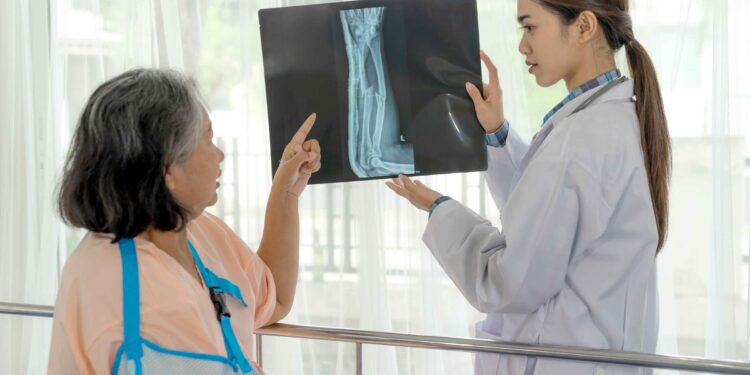In today’s busy world, it’s easy to overlook our health until something goes wrong. Many people only visit a doctor when symptoms become too obvious to ignore, but by then, treatment may be more complicated and costly. This is where regular health screenings come into play. A structured medical check-up package provides a proactive way to monitor your health, detect potential issues early, and prevent serious complications in the future.
Whether you are a young adult, a working professional, or someone in your golden years, investing in routine check-ups can make a significant difference in your long-term well-being. For those seeking affordable, high-quality healthcare in Asia, comparing options like the best medical check-up package in Malaysia is a smart step toward ensuring comprehensive coverage.
Why Regular Health Screenings Matter
Health screenings are designed to catch medical conditions in their earliest stages, often before symptoms appear. Many illnesses—such as diabetes, hypertension, and some cancers—can remain silent for years. By the time symptoms emerge, the disease may already be advanced.
Regular screenings offer the following benefits:
- Early detection: Increases the chances of successful treatment.
- Prevention: Identifies risk factors before they develop into chronic conditions.
- Peace of mind: Reassures individuals about their current health status.
- Lifestyle guidance: Provides actionable advice for diet, exercise, and other habits.
What’s included in a Standard Check-Up Package?
A typical medical check-up package usually consists of several core assessments and optional add-ons depending on age, gender, and lifestyle.
a. Medical History & Consultation
The doctor will first review your medical history, family background, lifestyle habits, and existing concerns. This step helps customize the package to your specific needs.
b. Basic Laboratory Tests
- Complete Blood Count (CBC): Evaluates overall blood health.
- Blood Glucose Test: Screens for diabetes and pre-diabetes.
- Lipid Profile: Measures cholesterol and triglycerides.
- Liver & Kidney Function Tests: Monitors organ performance.
c. Urine and Stool Tests
These detect urinary tract infections, kidney issues, or digestive concerns.
d. Imaging and Scans
- Chest X-ray: Screens for lung problems or abnormalities in the chest area.
- Ultrasound: Provides detailed imaging of organs like the liver, kidneys, and gallbladder.
e. Cardiovascular Assessment
- Electrocardiogram (ECG): Identifies heart rhythm issues.
- Blood Pressure Check: Detects hypertension.
f. Gender-Specific Screenings
- Women: Pap smear for cervical cancer, mammogram for breast health (based on age).
- Men: Prostate-specific antigen (PSA) test for prostate health.
The Role of Age and Lifestyle in Screenings
The frequency and type of screening depend on your age and health risks:
- Ages 20–30: Every 2–3 years if generally healthy. Focus on blood tests and lifestyle-related assessments.
- Ages 30–40: Every 1–2 years. Screen for cholesterol, diabetes, and blood pressure.
- Ages 40 and above: Annually. Add screenings for cancer, bone health, and cardiovascular health.
Lifestyle factors such as smoking, high alcohol intake, stress, or a sedentary routine may warrant more frequent check-ups regardless of age.
How Regular Screenings Help in Early Detection
a. Cardiovascular Disease
Hypertension and high cholesterol often go unnoticed. Screenings can detect them early, preventing heart attacks or strokes.
b. Diabetes
Blood sugar monitoring helps catch pre-diabetes, allowing lifestyle changes before it progresses to Type 2 diabetes.
c. Cancer
Pap smears, mammograms, and colonoscopies detect cancer at earlier, more treatable stages.
d. Thyroid and Hormonal Disorders
Simple blood tests can reveal thyroid imbalances that affect metabolism and energy levels.
e. Kidney and Liver Problems
Routine blood and urine tests can highlight issues long before symptoms appear.
Benefits Beyond Early Detection
Health screenings are not just about finding problems—they also empower individuals with knowledge about their bodies.
- Customized health advice: Doctors use results to give personalized recommendations.
- Motivation for lifestyle change: Seeing cholesterol or blood pressure numbers can inspire better habits.
- Tracking progress: Regular check-ups show whether lifestyle adjustments are working.
Choosing the Right Check-Up Package
When selecting a health check-up package, consider:
- Your age and gender: Some screenings are more relevant depending on life stage.
- Family history: A family history of cancer, diabetes, or heart disease may require advanced tests.
- Lifestyle habits: Smokers or athletes may need additional screenings.
- Budget and value: Packages vary in price, but prevention is often less costly than treatment.
In Southeast Asia, many individuals research the best medical check-up package in Malaysia, where hospitals and wellness centres are known for offering international-standard facilities at competitive prices. Malaysia’s medical tourism sector has grown significantly, making it an attractive destination for comprehensive yet affordable screenings.
How to Prepare for a Health Screening
To ensure accurate results:
- Fasting: Fast for 8–12 hours before blood and lipid tests.
- Avoid alcohol and caffeine: These can affect results.
- Bring medical records: Prior reports help track changes.
- Dress comfortably: Some screenings require movement or imaging procedures.
Frequency of Check-Ups
The frequency of screenings depends on health status, but general recommendations are:
- Healthy adults under 30: Every 2–3 years.
- Adults 30–40: Every 1–2 years.
- Adults 40+: Annually.
- Chronic illness patients: As advised by their healthcare provider.
Common Myths About Medical Check-Ups
- “I feel fine, so I don’t need a check-up.” Many conditions have no early symptoms.
- “Check-ups are only for older people.” Young adults with unhealthy lifestyles also benefit.
- “It’s too expensive.” Preventive care is often cheaper than treating advanced diseases.
Final Thoughts
Regular health screenings are not a luxury—they are a necessity. A check-up package consolidates vital tests and consultations into a convenient format, ensuring that you stay proactive about your health. By identifying problems early and guiding healthier habits, check-ups help individuals live longer, healthier lives.
If you’re considering your options, exploring the best medical check-up package in Malaysia may be worthwhile, given the country’s reputation for world-class healthcare at affordable rates. Ultimately, investing in regular screenings is an investment in your future well-being, offering peace of mind and a clear path toward healthier living.














